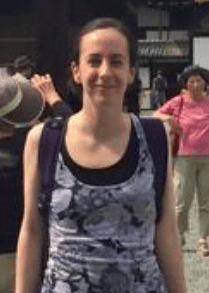Read the full article in Classical and Quantum Gravity (Open Access):
Classification methods for noise transients in advanced gravitational-wave detectors Jade Powell, Daniele Trifirò, Elena Cuoco, Ik Siong Heng and Marco Cavaglià 2015 Class. Quantum Grav. 32 215012
arXiv:1505.01299

Jade Powell is a PhD student at the University of Glasgow
A careful analysis of detector noise is necessary to determine whether a real gravitational-wave signal exists in the data of Advanced LIGO and Virgo. Instrumental and environmental disturbances can produce non-astrophysical triggers in science data, so called “glitches”. These glitches may reduce the duty cycle of the interferometers, and they could lead to a false detection if they occur simultaneously in multiple detectors. In the initial science runs of LIGO and Virgo a glitch could be classified by looking at an image of its time series waveform or spectrogram. This proved to be a slow and inefficient method for characterising a large number of glitches. To solve this problem the detector characterization team proposed a challenge for the fast automatic classification of Continue reading

You must be logged in to post a comment.